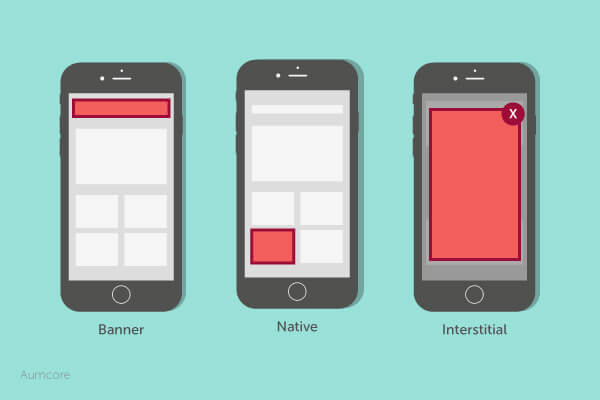Mobile website optimization is the process of ensuring that a website is designed and optimized for optimal performance on mobile devices. As mobile internet usage continues to increase, mobile optimization has become essential for businesses looking to reach and engage with their audiences. Here are some industry facts and figures related to mobile website optimization:
Mobile internet usage is on the rise: According to a report by Statista, mobile devices accounted for approximately 56% of website traffic in 2021, up from just 31% in 2015.
Mobile optimization improves user experience: A study by Google found that 61% of users are unlikely to return to a website that they had trouble accessing on their mobile device. Mobile optimization can improve load times, navigation, and overall user experience.
Mobile optimization can improve search engine rankings: In 2018, Google implemented mobile-first indexing, meaning that websites that are optimized for mobile devices are more likely to rank higher in search engine results pages (SERPs).
Mobile optimization can increase conversions: According to a report by Adobe, mobile optimized websites have conversion rates that are 2.4 times higher than non-optimized sites.
Mobile optimization involves a range of strategies: Mobile optimization can involve a range of strategies, including responsive design, mobile-friendly navigation, fast load times, and optimization of images and other media.
In other words and like we covered in the beginning, you need a mobile presence. Choosing to forgo and staying with desktops will only lead to lost revenue, and that’s something you can’t afford.
As a matter of fact, Google knows this and even provides an Impact Calculator tool that examines the potential effect speed has on your conversion rates. Look over it and, when you finish, check out these 20 mobile stats to help guide your strategy.
What Is Mobile Optimization
Mobile optimization is the process of optimizing a website, application, or other digital content for mobile devices such as smartphones and tablets. The goal of mobile optimization is to ensure that the content is easily accessible and usable on smaller screens, with faster load times, and an improved user experience.
It involves various techniques such as responsive design, which adjusts the layout and formatting of a website to fit the screen size of the device being used. It may also involve minimizing file sizes, simplifying navigation, and optimizing images and videos for mobile viewing.
Mobile optimization is essential for businesses and organizations to engage with mobile users, as mobile devices are now the primary method of accessing the internet. It also impacts a website’s search engine rankings, as search engines prioritize mobile-friendly sites in search results.
By implementing mobile optimization strategies, businesses can improve user engagement, increase conversions, and ultimately drive more revenue.
The Importance Of Mobile Optimization
Mobile optimization is crucial for businesses and organizations in today’s digital landscape. Here are some of the reasons why mobile optimization is important:
1. Mobile devices are the primary method of internet access: More people are using their mobile devices to access the internet than ever before, with mobile devices accounting for over half of all internet traffic worldwide. Without mobile optimization, businesses risk losing out on potential customers who may not be able to access their content on mobile devices.
2. Improved user experience: Mobile optimization enhances the user experience by ensuring that the content is easy to read, navigate, and interact with on mobile devices. This can lead to higher engagement, increased time spent on the site, and ultimately, more conversions.
3. Higher search engine rankings: Search engines prioritize mobile-friendly websites in search results, meaning that mobile optimization can have a significant impact on a website’s search engine rankings. By optimizing their site for mobile devices, businesses can improve their chances of ranking higher in search results, leading to more traffic and potential customers.
4. Increased conversions: Mobile optimization can improve the overall user experience and make it easier for users to complete desired actions, such as making a purchase or filling out a contact form. This can lead to higher conversion rates and ultimately, more revenue for businesses.
5.Competitive advantage: With mobile optimization becoming increasingly important, businesses that prioritize mobile optimization can gain a competitive advantage over those that don’t. By providing a seamless mobile experience, businesses can differentiate themselves from their competitors and attract more customers.
Mobile Usage Statistics 2023 Marketers Saw

- Mobile internet usage is expected to continue to rise, with experts predicting that mobile devices will account for approximately 72.6% of internet usage worldwide by 2025.
- Google’s mobile-first indexing means that mobile optimization is essential for search engine optimization (SEO) in 2023.
- The average user spends approximately 3 hours and 15 minutes per day on their mobile device, making mobile optimization key for engaging with audiences.
- Slow load times on mobile devices can lead to high bounce rates, with 53% of mobile users abandoning a website that takes longer than three seconds to load.
- Mobile users are more likely to share content than desktop users, making mobile optimization essential for social media marketing.
- Mobile users are more likely to use voice search, requiring businesses to optimize their content for voice queries.
- Approximately 62% of users access email on their mobile devices, making mobile optimization key for email marketing.
- Mobile optimization is essential for e-commerce, with approximately 73% of e-commerce sales expected to be made on mobile devices by 2022.
- Mobile-optimized websites have conversion rates that are 64% higher than non-optimized sites.
- Approximately 53% of mobile users are more likely to purchase from a business with a mobile-friendly website.
- Approximately 70% of mobile searches lead to action within an hour, making mobile optimization key for driving conversions.
- Over 90% of consumers use their mobile devices while in a store to compare prices, check reviews, and search for product information, highlighting the importance of mobile optimization for retail businesses.
- Mobile optimization can improve local search rankings, making it easier for users to find and connect with local businesses.
- Mobile optimization is key for improving accessibility and ensuring that all users can access and engage with a website, regardless of their device or ability.
- Mobile users are more likely to engage with mobile-optimized emails, with mobile-optimized emails having an average click-through rate of 15.9%.
- Approximately 80% of users will abandon a website that does not display well on their mobile device.
- Mobile users are more likely to engage with content that is easy to read and navigate on their devices.
- Mobile optimization can improve user engagement and loyalty, leading to higher lifetime value for customers.
- Mobile optimization is key for creating seamless user experiences across all channels, including social media, email, and other marketing channels.
- Mobile optimization is a continually evolving field, requiring businesses to stay up-to-date with the latest trends and best practices to remain competitive in the digital marketplace.
Tips for Mobile Website Optimization

You have a couple of options here, such as a mobile optimized vs responsive site, but the latter will be your best bet. While a mobile optimized site is a good starting point, all it really is is a website that works on mobile devices and can pass Google’s tests. What you want is a responsive site that resizes all content according to the screen it resides in. Not only will this pass Google’s tests, but it will also deliver a much better experience for your users, who are the ones you should be focusing on.
Apart from a mobile-friendly site, make sure to account for other mobile-related things you’re sure to encounter, such as local search if you have a brick and mortar location, and long-tail keywords that are favored by mobile users. For both of these, think of your users’ intent and choose keywords that answer who, what, where, when, why and how. For example, while a desktop user searches for ‘coffee nyc’, a mobile user will search for ‘coffee shops near me’. In this case, the user’s intent is to find a coffee shop near them.
Why Mobile Optimization Is Important: Putting It All Together
You’re well on your way if you’ve done or will do everything we’ve covered today. If you’re unsure about your mobile optimization efforts, feel free to use these 5 tools that will help you optimize your site for mobile search.
This blog post is Last updated on May 16th, 2023.





Tell us your thoughts in the comments